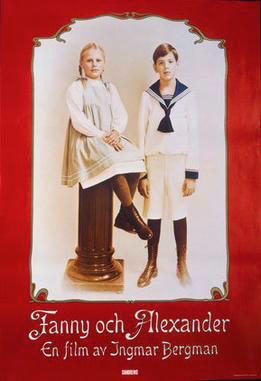 |
| Erland Josephson and Liv Ullmann in Scenes From a Marriage |
A blog formerly known as Bookishness / By Charles Matthews
"Dazzled by so many and such marvelous inventions, the people of Macondo ... became indignant over the living images that the prosperous merchant Bruno Crespi projected in the theater with the lion-head ticket windows, for a character who had died and was buried in one film and for whose misfortune tears had been shed would reappear alive and transformed into an Arab in the next one. The audience, who had paid two cents apiece to share the difficulties of the actors, would not tolerate that outlandish fraud and they broke up the seats. The mayor, at the urging of Bruno Crespi, explained in a proclamation that the cinema was a machine of illusions that did not merit the emotional outbursts of the audience. With that discouraging explanation many ... decided not to return to the movies, considering that they already had too many troubles of their own to weep over the acted-out misfortunes of imaginary beings."--Gabriel García Márquez, One Hundred Years of Solitude
Search This Blog
Showing posts with label Jan Malmsjö. Show all posts
Showing posts with label Jan Malmsjö. Show all posts
Wednesday, March 30, 2016
Scenes From a Marriage (Ingmar Bergman, 1973)
Sunday, January 10, 2016
Fanny and Alexander (Ingmar Bergman, 1982)
Artists' reputations often take a severe hit as time passes: No one thinks Walter Scott was as great a novelist or poet as his contemporaries did; today, he's read only by specialists, and then often grudgingly. So it's not surprising to find people who think that the directors who revolutionized filmmaking in the 1950s and '60s, like Ingmar Bergman, Federico Fellini, and Akira Kurosawa, are mannered and overrated. Some of Bergman's early films, I think, are: Smiles of a Summer Night (1955) is better in its Stephen Sondheim musicalized version; Wild Strawberries (1957) is a meditation on aging by someone who hasn't aged; The Seventh Seal (1957) and The Virgin Spring (1960) strive for a mythic quality that the material and the medium won't bear. But in his later career, after he had ceased to be the darling of the "art houses," he made some intensely personal films that have the warmth and humanity that he could only feint at in the early ones. Critics tend to prefer his films about women, Persona (1966) and Cries & Whispers (1972), but I find him most genuine in his exploration of childhood, especially his elegant reworking of Mozart's The Magic Flute (1975), which sees the opera through childlike eyes, and Fanny and Alexander, which works with a kind of double-vision: We know what's going on in the various sexual combinations and permutations of the Ekdahl family and their lovers, but we also have the point of view of Fanny (Pernilla Allwin) and especially Alexander (Bertil Guve) to elevate them from the merely physical and sometimes sordid into the realm of mystery. If seen from the point of view of the children, this is a kind of ghost story. Alexander will carry into adulthood the experience of seeing two ghosts: one benign, his real father (Allan Edwall), and one malign, his stepfather (Jan Malmsjö). It is also a fable about two kinds of imagination: the artistic and the religious. And we know which side Bergman comes down upon rather heavily.
Subscribe to:
Posts (Atom)
